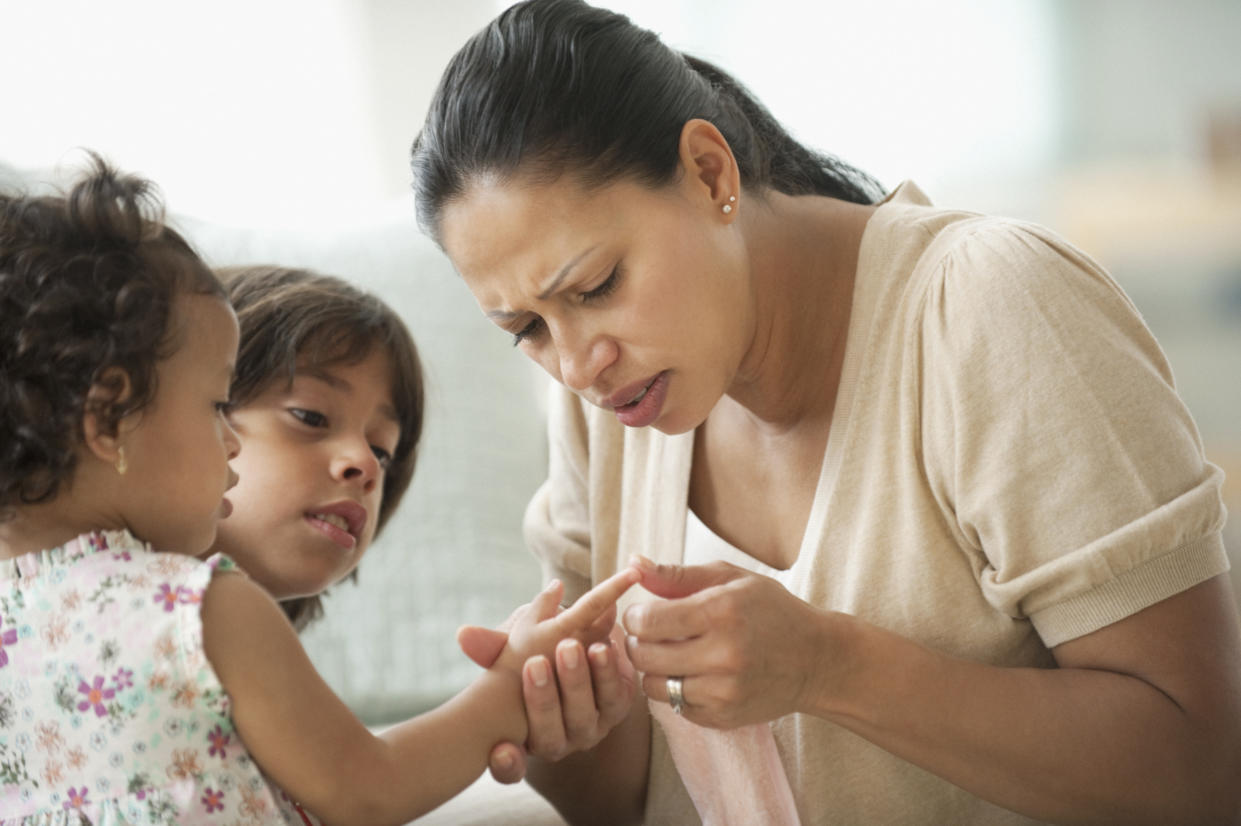Your child needs to see a doctor, but you don’t suspect COVID-19. Now what?

People get sick—that’s just part of being human. And, under normal circumstances, you’d probably just see a doctor if you or your child became ill. But we’re not living under normal circumstances right now. We’re living in the midst of a global pandemic.
Experts say it’s a good idea to avoid going to a doctor’s office or hospital right now if you can to lower the risk you or your child will contract COVID-19. “You won’t want to interact with the medical system right now if you don’t have to,” Rajeev Fernando, MD, an infectious disease expert in Southampton, NY, tells Yahoo Lifestyle.
Still, illness and injuries happen, and they’re especially likely for kids when they’re off from school, Danelle Fisher, MD, FAAP, pediatrician and vice chair of pediatrics at Providence Saint John’s Health Center in Santa Monica, Calif., tells Yahoo Lifestyle. “Kids are willing to do crazy things at home,” she says. “It’s very easy right now to just say, ‘Go and play in the yard,’ but you have to be careful. They can get into trouble.”
When kids are home for longer stretches of time, Fisher says she tends to see a lot more trampoline injuries, cuts and bruises from slipping and falling, and head and arm injuries from doing things like jumping on the bed (and falling off of it). It’s also now tick season, and we’re technically still in cold and flu season, which unfortunately doesn’t stop because there’s a global pandemic.
Basically, there are a lot of chances for your child to get sick.
So, what should you do if your child gets sick?
If your child is sick or injured, it’s a good idea to try to do an assessment first, Ashanti Woods, MD, a pediatrician at Baltimore's Mercy Medical Center, tells Yahoo Lifestyle. “Try to determine whether it’s something that can be managed at home,” he says. “A scrape, small fall, or rash can usually be handled from home. But a broken arm from jumping off the couch, of course, can’t be managed from home.”
If your child is sick, but it’s not an emergency situation, Fisher recommends calling your doctor. “Definitely call instead of going into the office,” she says. “Almost everybody right now is doing some form of telemedicine, and your doctor may be able to help you over the phone or in a video call.”
If your doctor determines that your child needs medical attention, they can advise you on where to go. “They may know of an urgent care office that’s not particularly busy that you could go to instead of a swamped emergency room,” Fisher says.
What about if they have respiratory symptoms?
It’s easy to assume that anyone right now that anyone with a cough or fever has COVID-19, but it’s equally easy to dismiss those fears. Turns out, you should go with your gut. “Right now, it is safe to assume that anyone with the symptoms of coronavirus—fever, cough, shortness of breath—has COVID-19 until proven otherwise,” Fernando says.
Of course, it’s still important to take medical history into account here. For example, if your child has a known history of allergies, it’s possible that they’re simply experiencing seasonal allergy symptoms, Fernando says. It's the same with asthmatics.
Fever is the key distinguisher here, Fernando says—you don’t usually get a fever with a cold, allergies, or asthma. “But overall, it's COVID-19 until proven otherwise,” Fernando says.
If you suspect you or your child has COVID-19, try to isolate the sick person away from the rest of the family and call your doctor about next steps.
When should you go straight to the ER?
But with any kind of broken bone, loss of consciousness, any injury with a lot of bleeding, or “anything sticking out of the skin… no question, go straight to the ER,” Fisher says. And, if you’re not sure if your child needs medical attention or not, Woods recommends calling your doctor anyway.
While you probably want to do your best to keep your family as far away as possible from medical centers and offices, Fisher recommends using your best judgment. “If you feel like, ‘I need to go to the ER for this,” you’re probably right,” she says. “If you need to seek treatment, you need to seek treatment.”

For the latest coronavirus news and updates, follow along at https://news.yahoo.com/coronavirus. According to experts, people over 60 and those who are immunocompromised continue to be the most at risk. If you have questions, please reference the CDC and WHO’s resource guides.